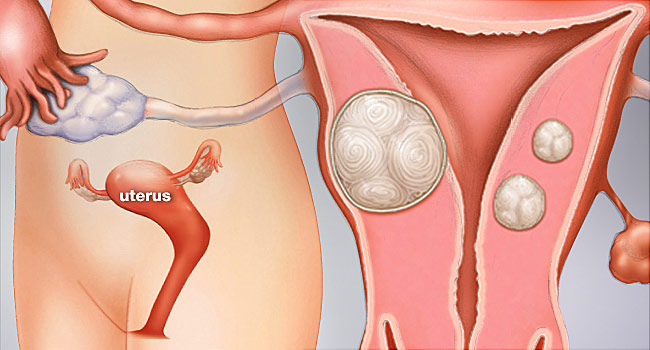
Women of childbearing age get fibroids which may shrink when they reach menopause. Even though many types of pelvic tumors affect women in Houston, TX, uterine fibroids are the most common. Uterine fibroids in Houston, TX may be prevalent but they are misunderstood. There are lots of myths about them and it is easy to get confused. Keep reading to find out the truth behind common myths.
- A Routine Ultrasound Will Detect Them
If your doctor suspects that you may have uterine fibroids, they will use a transvaginal ultrasound to diagnose it. Even though it is a great diagnostic tool, it may not reveal all the fibroids. They vary in size and the smaller ones may be difficult to detect. Your doctor may use laparoscopic ultrasound for a better view. It can show about twice the number of fibroids that transvaginal ultrasounds show.
- Fibroid Tumors Are Cancerous
Fibroids are mostly benign and they do not always turn into cancer. Your doctor will give you a diagnosis depending on your symptoms. It may be possible to detect cancer during surgery for a seemingly benign fibroid tumor. Having uterine fibroids does not increase your likelihood of getting cancer.
- The Symptoms Are Always Consistent
The symptoms of fibroids are not consistent or defined. Different women may experience different symptoms of the same problem. Some of the most common ones include pelvic pain, heavy periods, and prolonged periods.
- Endometrial Ablation Treats Uterine Fibroids
Endometrial ablation is a common treatment option for abnormal uterine bleeding. It works by destroying your uterine tissues, also known as endometrium. It prevents the growth of new tissues, hence reducing or stopping menstrual bleeding. Even though it is an effective treatment option, it is not appropriate for fibroids. If endometrial ablation destroys fibroids, it is an incidental and often incomplete occurrence. The destroyed fibroids are likely to grow back.
- Fibroids, Cysts, Polyps, and Tumors Are All the Same
Even though they are problems that may affect women, fibroids, polyps, cysts, and tumors are all different. A fibroid is a benign growth that may form from your uterine tissues. Fibroids may also be referred to as fibroid tumors even if they are benign.
- They Continue Growing Throughout Your Lifetime
Estrogen promotes the growth of fibroids. Their growth depends on your hormonal fluctuations. Pregnancy may promote the growth of fibroids because of the increased estrogen levels. They shrink during menopause as your ovaries stop producing estrogen. For most women, the symptoms of uterine fibroids naturally disappear after menopause. However, there are many treatment options for pre-menopausal women.
- Surgery Is the Best Option
Even though you may need surgery to treat fibroids, it is not always your best option. If you do not experience any symptoms, your doctor may suggest that you wait for them to shrink after menopause. If you need treatment, there are lots of non-surgical options.
If you or your loved one have uterine fibroids, consider seeking medical attention. Your doctor will advise you depending on your specific needs.